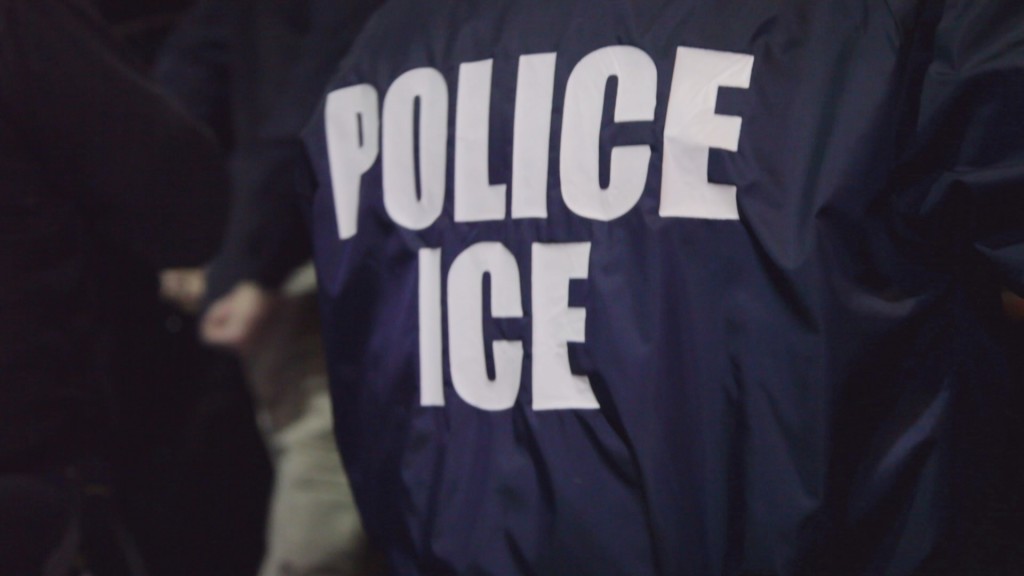Report: Deportation Efforts Still Broad, Uneven

November 14, 2011
Share
In June, Immigration and Customs Enforcement [ICE] chief John Morton sought to clarify the agency’s increasingly controversial deportation programs. ICE agents and attorneys on the ground would have situational discretion and should focus resources on serious criminals and repeat border violators.
Obama Administration officials — from the White House’s Cecilia Muñoz to Secretary of Homeland Security Janet Napolitano — cite Morton’s memo when responding to critics who argue that programs like Secure Communities are separating families and deporting people who pose no threat to the community.
“If you’re doing law enforcement, you focus your resources where they’re going to have the greatest impact,” Muñoz told FRONTLINE when we interviewed her for the film Lost in Detention, “and not on folks that are of a low value for enforcement purposes.”
But, a new survey [PDF] from the American Immigration Lawyers Association [AILA] and the American Immigration Council [AIC] suggests that the tweak to deportation priorities isn’t working in a streamlined way.
The prosecutorial discretion memo [PDF] gave a laundry list of factors for agents to consider when considering the detention and deportation of an illegal immigrant: the amount of time someone has lived in the U.S., how they arrived in the country, their criminal history, whether the immigrant in question has a spouse or children who are U.S. citizens.
In particular, ICE called for “prompt particular care and consideration” for groups like veterans, long-time lawful residents and victims of domestic violence.
But AILA-AIC’s survey of 252 case submissions [PDF] says that “while practices have improved in a few ICE offices, in the majority of offices ICE agents, trial attorneys and supervisors admitted they had not implemented the memoranda and there had been no changes in policy or practice.” In addition, “ICE offices are inconsistently interpreting” John Morton’s memo.
“This is a classic example of leadership saying one thing and the rank and file doing another,” Gregory Chen, director of advocacy for the AILA, told New York Times reporter Julia Preston. Preston’s article covers the cases of three people who have been caught up in the confused and complicated system; it’s well worth a read.
The AILA-AIC survey recommends additional clarification, guidance and training from the Department of Homeland Security [DHS] and ICE.
An ICE official did not immediately respond to our request for comment. Morton told Preston, though, that “like any major change in enforcement policy, this is a work in progress.” Preston also writes that “officials say they need time to transform federal agencies accustomed to cut-and-dried immigration enforcement, with any illegal immigrant a target for deportation.”
ICE continues to deport a record number of illegal immigrants — almost 400,000 people in 2011. According to ICE, about half — 55 percent — had criminal convictions.
Related Documentaries
Latest Documentaries
Related Stories
Related Stories
Explore
Policies
Teacher Center
Funding for FRONTLINE is provided through the support of PBS viewers and by the Corporation for Public Broadcasting, with major support from Ford Foundation. Additional funding is provided the Abrams Foundation, Park Foundation, John D. and Catherine T. MacArthur Foundation, Heising-Simons Foundation, and the FRONTLINE Trust, with major support from Jon and Jo Ann Hagler on behalf of the Jon L. Hagler Foundation, and additional support from Koo and Patricia Yuen. FRONTLINE is a registered trademark of WGBH Educational Foundation. Web Site Copyright ©1995-2025 WGBH Educational Foundation. PBS is a 501(c)(3) not-for-profit organization.





















